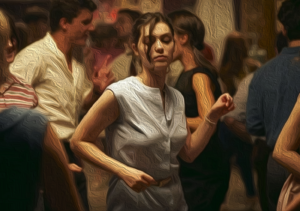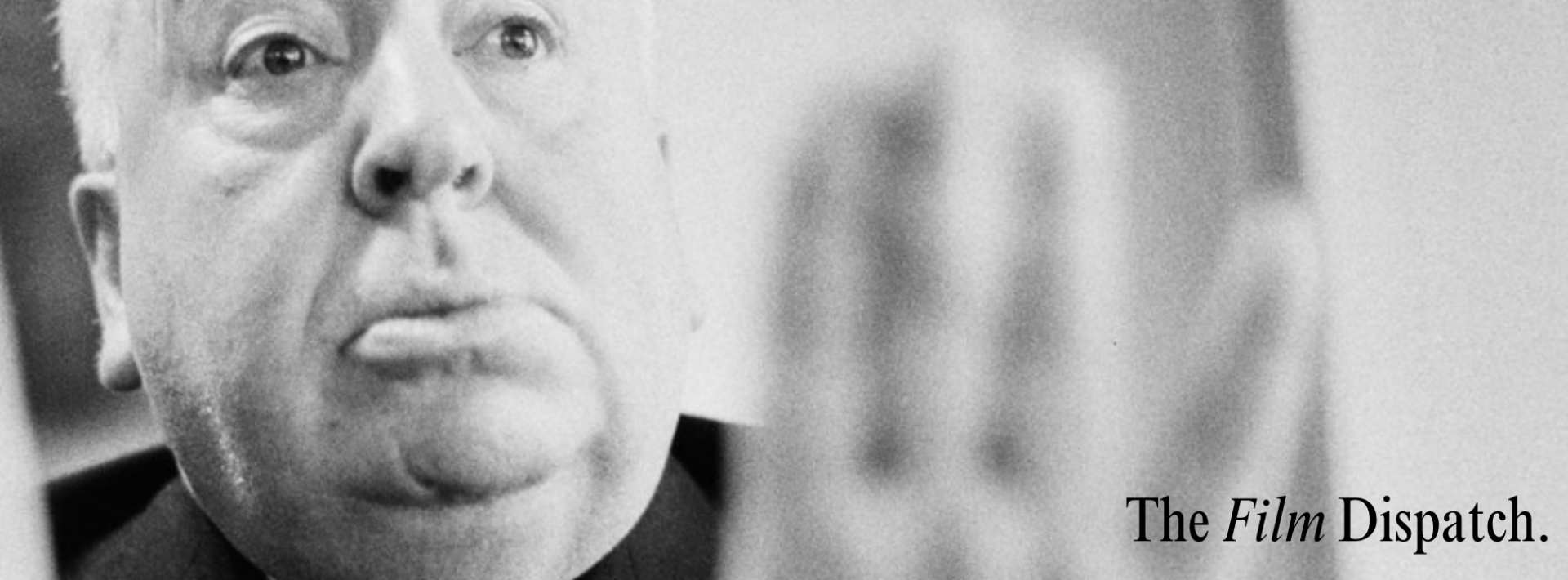
格拉斯哥电影节的经历对我来说是很多个第一次组成的:第一次在一天内参加一共五个放映和讲座;第一次参加电影行业的networking;第一次带着行李箱看电影。这些经历如此的新奇和兴奋,以至于肉体上的疲惫都被大脑自动忽略。
This year, my experience at Glasgow Film Festival was made up of many personal firsts: the first time I attended a total of five screenings and lectures in one day; the first time I attended a film industry networking event; the first time I took my suitcase to a screening. These experiences were so fresh and exciting that my brain automatically ignored the physical exhaustion.
我在格拉斯哥的每天都带着本子,随时随地记下我对电影内容、影院环境、观众反应等任何一切我觉得需要记录的内容。影厅的黑暗就是我的遮蔽,我可以自如地在放映过程中对视野范围中的其他观众进行观察。我的“窥探欲”被大大满足,听到有人和我一起笑,看到有人也在流眼泪,让我觉得这也是寻找同类的一个过程。
在GFF 的观影体验中,最印象深刻的是Happening,一部在威尼斯上映时因情节尺度过大引起影评人心理不适而晕倒的电影。我自以为经过钛的洗礼,我已经会平淡地面对电影所展现的女性的生理疼痛。但当我真的面对着女主角Anne试图用利器捅进下体的时候,我还是应激地侧过了脸。作为女性,这种生理疼痛似乎有传导性,让我们感同身受。但惊讶的是,我周围的成熟女性看起来非常冷静。在屏幕光的映射下,我看到右下几排的男性总是在撑着自己的额头或者捂着眼睛。As the director Audrey Diwan says, “A lot of male audiences don’t have images.”这些场景一定让他们感到惊讶,甚至可能感到害怕。Diwan said in the Q&A session:“Abortion is still a case. ”仍有许多地区的妇女不能自由控制自己的子宫和自己的身体。我凝视着Anne,看着她的故事,同时也是在凝视作为女性的自己,凝视社会上女性的处境。堕胎是女性在这个社会上遭遇的压迫和束缚的缩影。
在国际妇女节那天看到这样一部电影,让我感受到了女性电影人的意义。我们需要女性电影人,去表达女性的声音。
I carried a notebook with me every day in Glasgow, ready to take notes on the content of the films, the cinema facilities, audience reactions and anything else I felt I needed to record. The darkness of the cinema was my shield, and I was free to make direct observations of the other audience members in my field of vision during the screening. My “voyeurism” was greatly satisfied, and hearing someone laugh with me and seeing someone else shed a tear made me feel like it was a search for kindred spirits.
The most impressive part of the GFF screening experience was Happening, a film that caused critics to pass out from the psychological discomfort of its over-scaled plot when it was screened in Venice. After the watching experience of Titane, I thought that I would be able to stand the physical pain of women in the film. But when I was confronted with the heroine Anne attempting to perform her own abortion, I still turned my face away. As a woman, this physical pain seemed to have a conductivity that made us empathise. But to my surprise, the more mature female audience around me seemed perfectly calm. In the light of the screen, I could see that the male audience in the bottom right rows were always holding their foreheads or covering their eyes. As the director, Audrey Diwan says, ‘A lot of male audiences don’t have images.’ The scenes must surprise them, maybe even scare them. Diwan noted in the Q&A session: ‘Abortion is still a case.’ There are still many areas where women are not free to control their uteruses and their bodies. As I gazed at Anne, at her story, I was also gazing at myself as a woman, at the situation of women in society. Abortion reflects the repression and bondage that women experience in this society.
Watching a film like this on International Women’s Day made me feel the significance of women filmmakers. We need them to express the female voice.
Written for The Film Dispatch by Qiongying Hu.
